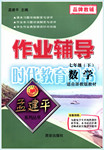题目内容
【题目】选词填空(可变换形式,其中有两项是多余的)

【1】The past two years have seen that the app he developed really ______________ and made him a famous person.
【2】He often goes out to ______________ mountains and rivers.
【3】I have the view that my English teacher’s teaching style ______________ that of most other teachers.
【4】First, I want to ______________ to my dearest friend Nancy, and to her handsome husband Paul on the glorious occasion of their wedding.
【5】His plan broke down when it ______________ practice because he had not given enough attention to details.
【6】The students ______________ their lessons really hard and their efforts will be rewarded with success in the end.
【7】Unexpectedly, she attracted 79 partners from the Internet, and raised 410,000 yuan ______________ to start the project.
【8】We had to ______________ the house as we had lost the key.
【答案】
【1】took off
【2】take photographs of
【3】is similar to
【4】offer my congratulations
【5】was put into
【6】work on
【7】in total
【8】break into
【解析】
【1】考查动词短语。句意:过去两年见证了他研发的程序真的很受欢迎,使他成为成功的人。take off的意思:起飞;脱掉;(使)离开;突然成功。and made提示前后时态都是一般过去时,故填 took off 。
【2】考查动词短语。句意:他经常外出给山河拍照。take photographs of的意思是拍照,不定式后用动词原形,故填take photographs of 。
【3】考查固定短语。句意:我有一种看法:我的英语老师的教学风格和其他多数老师的风格相似。be similar to的意思:和…相似。have提示用现在时,主语teaching style是单数,谓语动词用第三人称单数,故填is similar to 。
【4】考查动词短语。句意:首先,在他们婚礼的美好时刻,我想要表示对我最亲爱的朋友南希,以及对她帅气老公的祝福。offer my congratulations的意思:提供我的祝贺,故填offer my congratulations 。
【5】考查动词短语。句意:因为他没有充分考虑细节,当计划投入实践时,他的计划破产了。put into的意思:投入…。计划和投入是被动关系,broke提示用一般过去时,故填was put into 。
【6】考查动词短语。句意:这些学生们刻苦学习他们的功课,他们的努力最后会有成功的回报的。work on的意思:从事。努力是现在的状态用一般现在时,故填 work on 。
【7】考查介词短语。句意:令人意外的是,她在网上吸引了79个搭档,为这个项目筹集了41万元。in total的意思:总共。故填 in total 。
【8】考查动词短语。句意:因为我们丢了钥匙,我们不得不破门而入。break into的意思:闯入,不定式后用动词原形。故填break into 。

 作业辅导系列答案
作业辅导系列答案




